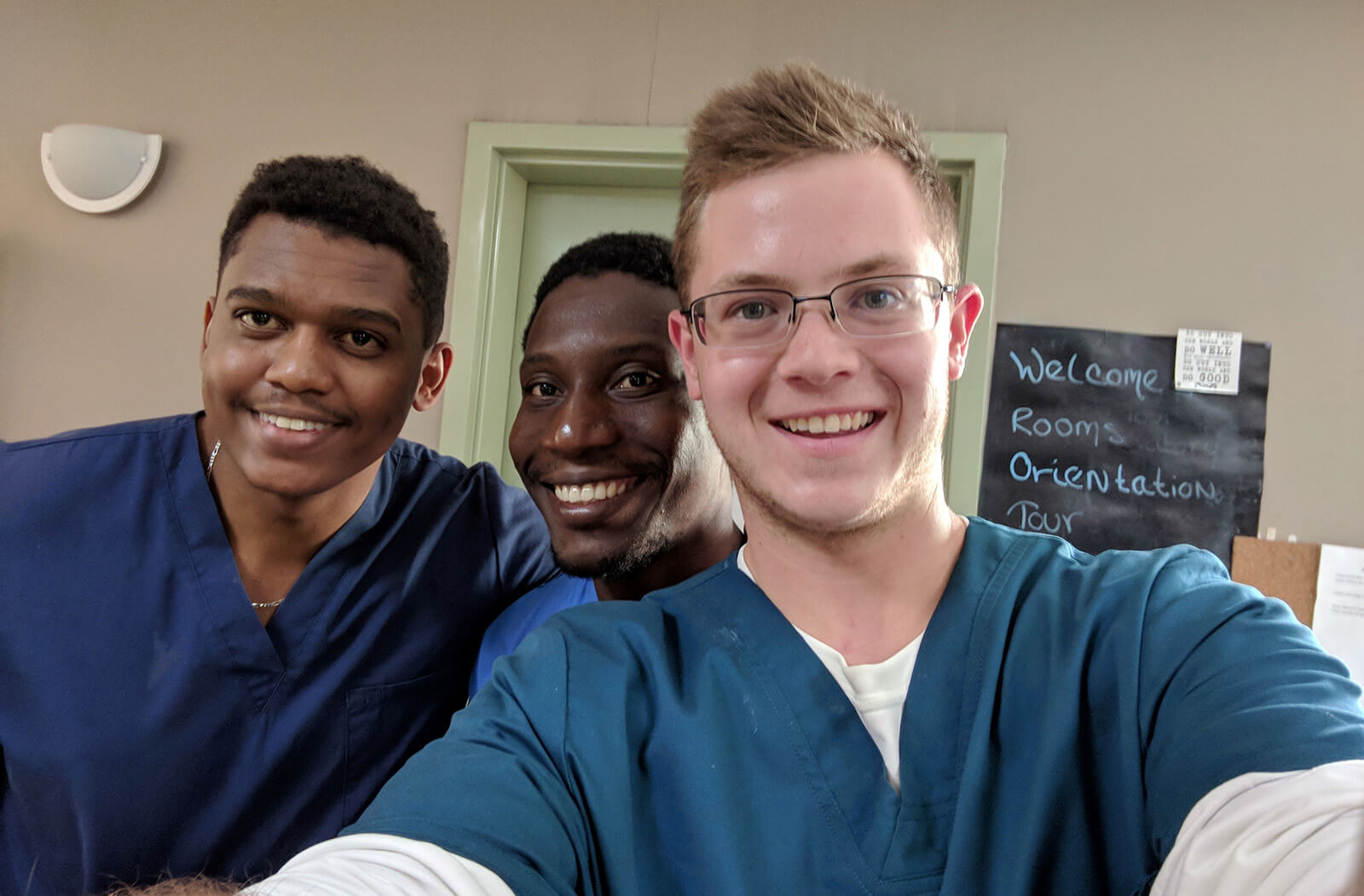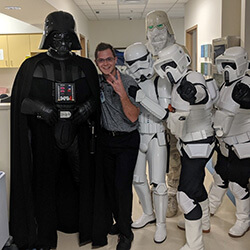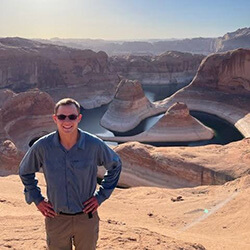
White Coat Profile: Michael Demangone

The White Coat Ceremony marks the first time a medical student will don his or her white coat, the defining symbol of a physician. The coat bestows a great honor on each student, and with it comes a responsibility to uphold the trust of every patient they will encounter. The Class of 2026 will receive their white coats on July 15 during a ceremony that begins at 3:30 p.m. at Symphony Hall in downtown Phoenix.
Meet Michael Demangone
Born and raised in Page, AZ, a unique town of 7,500 people located in northern Arizona that borders the Navajo Reservation, Michael Demangone is a small-town kid.

During his first global health class, Demangone became fascinated with other cultures, and he saw how doctors got to care for a variety of people in intimate, real settings.
The profound effect doctors can have on smaller communities is immense. Demangone was struck by that connection and its intimacy. It showed him how well suited a physician can be to make in impact when they truly understand their patients.
As he enters medical school and reflects on his time in college, he feels blessed to have been assisted by many people throughout his journey — especially his family, who have always been there for him. They are his biggest supporters, and he knows he couldn’t have gotten here without them.
Path toward Medicine
What was the spark that led you to become a physician?
Deciding to become a physician was a really long process. I grew up with medicine in the house — as my dad is a family doctor — but I didn’t start considering medicine until I was already in college and had taken a few global health classes.
I had the opportunity to make a video related to health care for one of my classes, and I decided to base it around health care on the Navajo Reservation. I was back on the Navajo Reservation, traveling dirt roads for hours to get to patients’ houses. Once there, I was able to see their livestock, homemade rugs and family photos. I saw the trust between patient and provider, and I loved how real life was in those moments. I believe it was that experience that sparked me to become a physician, but it's always been interactions with patients and trust in the Lord that have fueled this journey for me.
Did you do any volunteering in health fields prior to medical school?
I volunteered in a few different health fields prior to medical school. I volunteered with the Northern Arizona Volunteer Medical Cooperation and went to Haiti on a medical mission trip with them. I also volunteered in Phoenix at Banner Desert and on the Navajo Reservation at the Tuba City Regional Health Care Center during the pandemic. I’m sure I got as much out of it as the patients did. My volunteering experiences were all very humbling. I realized just how much people are going through in their lives and how resilient they can be. It is amazing how some people retain so much joy during hardships, and I was able to see that as a volunteer. It was also awesome to see how team-oriented medicine really is. There are so many moving parts, and each role is vital.
The College of Medicine – Phoenix
Why did you choose the College of Medicine – Phoenix?
Out of every medical school that I interacted with, I felt the most cared for by the College of Medicine – Phoenix. Every part of the interview and acceptance process felt so thorough. The admissions team wanted to make sure that I chose the best medical school for me, and they supported me with information and encouragement throughout. The school also does great preparing students in the first two years to deal with patients, and after the first two years, they have opportunities to do rotations in a variety of settings. I’ll have the opportunity to do rotations at a cutting-edged hospital like Mayo Clinic, or in small towns on the Navajo Reservation. I felt that I would have the best opportunity to give back to my state while being surrounded by good people, so I chose to come here.
What excites you most about beginning medical school?

Significance of the White Coat
What does the white coat mean to you?
When I think of what the white coat means to me, I think of impact, combined with integrity. I see how doctors are well-positioned to greatly impact individual lives and even whole communities in small and big ways. I’ve seen small-town doctors help a patient move after a shift. I’ve seen big town doctors run orphanages after amputating a guy’s leg. The white coat means to me that I try to do the best by those around me, even in the smallest of ways. To this extent, the white coat means real life. Consistently seeing real people, with real problems in a broken world, and the opportunity to imperfectly care as best as we can for each other.
About the College
Founded in 2007, the University of Arizona College of Medicine – Phoenix inspires and trains exemplary physicians, scientists and leaders to advance its core missions in education, research, clinical care and service to communities across Arizona. The college’s strength lies in our collaborations and partnerships with clinical affiliates, community organizations and industry sponsors. With our primary affiliate, Banner Health, we are recognized as the premier academic medical center in Phoenix. As an anchor institution of the Phoenix Bioscience Core, the college is home to signature research programs in neurosciences, cardiopulmonary diseases, immunology, informatics and metabolism. These focus areas uniquely position us to drive biomedical research and bolster economic development in the region.
As an urban institution with strong roots in rural and tribal health, the college has graduated more than 1,000 physicians and matriculates 130 students each year. Greater than 60% of matriculating students are from Arizona and many continue training at our GME sponsored residency programs, ultimately pursuing local academic and community-based opportunities. While our traditional four-year program continues to thrive, we will launch our recently approved accelerated three-year medical student curriculum with exclusive focus on primary care. This program is designed to further enhance workforce retention needs across Arizona.
The college has embarked on our strategic plan for 2025 to 2030. Learn more.